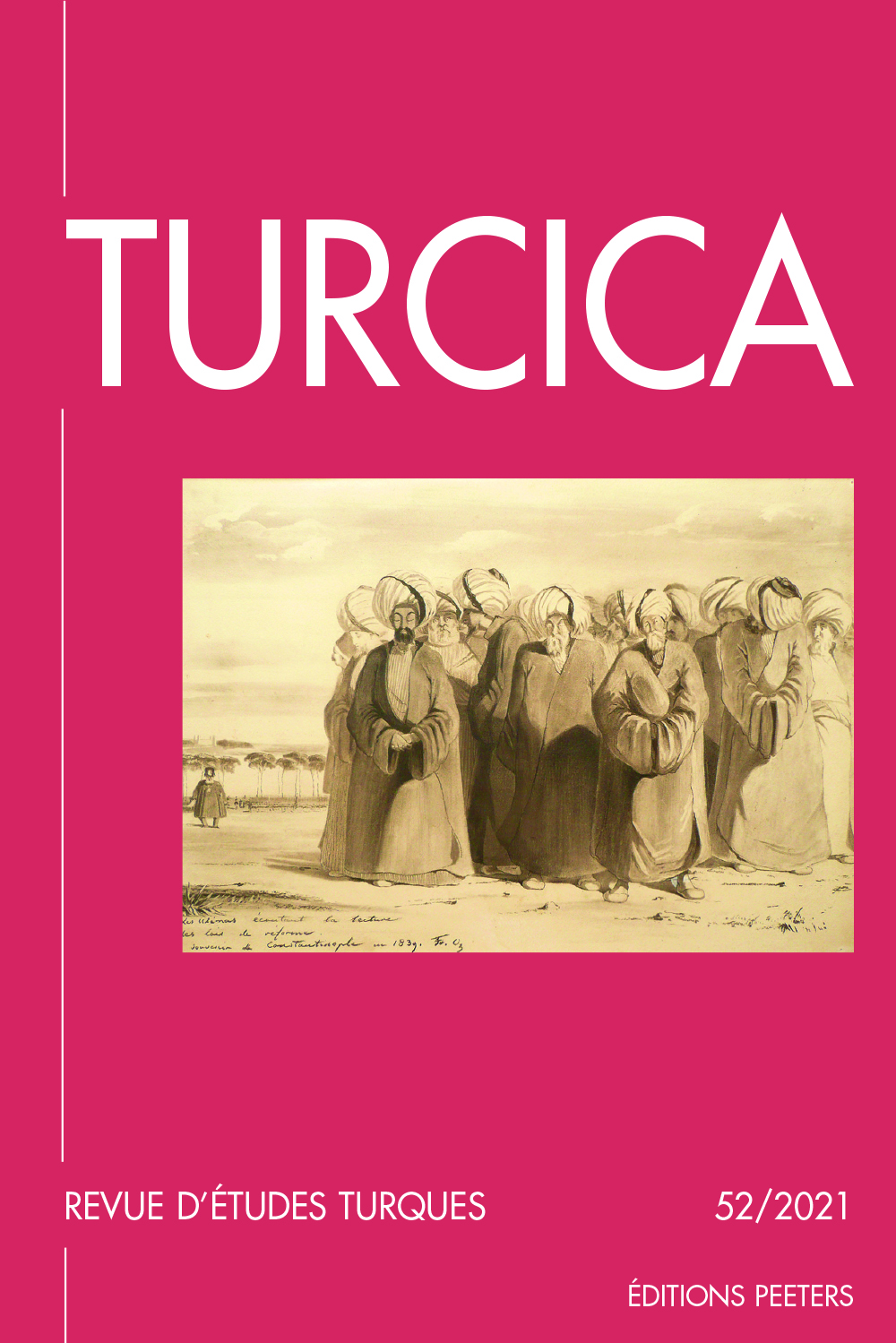 previous article in this issue previous article in this issue | next article in this issue  |

Preview first page |
Document Details : Title: Syntactic and Semantic Aspects of Postpositions in Old Anatolian Turkish Author(s): TURAN, Fikret Journal: Turcica Volume: 30 Date: 1998 Pages: 297-308 DOI: 10.2143/TURC.30.0.2004304 Abstract : Fikret TURAN, Syntactic and semantic aspects of postpositions in old anatolian Turkish Postpositions in Old Anatolian Turkish are either pure postpositions or the certain adverbs that function as postposition in syntactic contexts. Although the functions of postpositions are semantically very close to the functions of adverbs, structurally they are different from adverbs for they always establish postpositional phrases in which they follow nouns or nominal units. Most of postpositions in Old Anatolian Turkish are of Turkic origin and require case suffixes. Each postposition governs a certain case especially when they follow pronouns. Syntactically, postpositional phrases explain a noun, adjective, adverb or verb in terms of time, place, direction, similarity, manner, quality, quantity, cause, result and instrumentality. Fikret TURAN, Aspects syntaxiques et sémantiques des postpositions en turc ancien d’Anatolie Les postpositions en turc ancien d’Anatolie sont soit de pures postpositions, soit certains adverbes fonctionnant comme postpositions dans des contextes syntaxiques. Bien que les fonctions de ces postpositions soient sémantiquement très proches des adverbes, elles en diffèrent structuralement car elles donnent toujours naissance à des expressions postposées dans lesquelles elles suivent des noms ou des unités nominales. La plupart des postpositions utilisées en turc ancien d’Anatolie sont d’origine turcique et appellent des suffixes de cas. Chaque postposition commande un cas particulier, surtout quand elle suit un pronom. Sur le plan syntaxique, les expressions postposées définissent un nom, un adjectif, un adverbe ou un verbe en indiquant le temps, le lieu, la direction, la similarité, la manière, la qualité, la quantité, la cause, l’effet, l’utilité. |
 |


